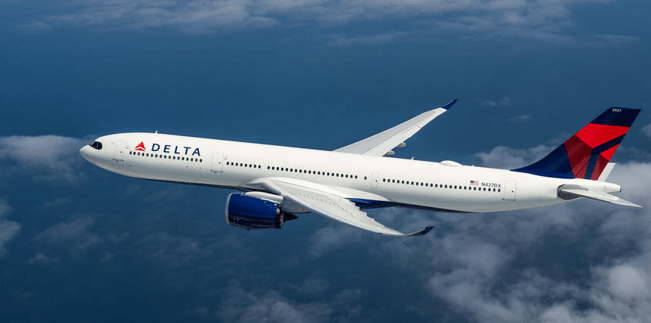Delta Air Lines has reported solid financial performance for the third quarter of 2024, showcasing resilience despite operational challenges earlier in the year.
With improving industry conditions and strong demand, Delta in a statement projects an optimistic outlook for the final quarter of the year.
Delta’s CEO Ed Bastian attributed the airline’s success to its dedicated workforce, stating, “Thanks to the exceptional work of the entire Delta team, we continue to lead the industry operationally and financially, with a double-digit operating margin and nearly US$3 billion of free cash flow generation year-to-date.”
Mr. Bastian also emphasized the company’s commitment to rewarding employees, with nearly US$1 billion accrued for profit-sharing payouts scheduled for February 2025.
Financial highlights for Q3 2024
For the third quarter ending September 2024, Delta reported US$15.7 billion in operating revenue, a slight increase from the US$15.5 billion recorded during the same period in 2023.
The airline’s operating income came in at US$1.4 billion, translating to an 8.9percent operating margin. Pre-tax income stood at US$1.6 billion, and earnings per share (EPS) reached US$1.97.
On a non-GAAP basis, which factors in the financial impact of the CrowdStrike-caused outage, Delta’s operating revenue was US$14.6 billion, with adjusted earnings per share (EPS) of US$1.50.
The outage, which occurred in August, resulted in the cancellation of 7,000 flights and a revenue loss of US$380 million. Despite these disruptions, Delta managed to deliver US$1.4 billion in operating income with a 9.4percent margin.
The company ended the quarter with US$1.3 billion in operating cash flow and made payments of US$263 million toward debt and finance lease obligations. Total debt stood at US$17.7 billion, while free cash flow for the year reached US$2.7 billion.
Impact of the CrowdStrike outage
In August 2024, Delta experienced a significant outage caused by a CrowdStrike security incident, which led to the cancellation of thousands of flights.
The financial repercussions were notable, with a US$380 million revenue loss, as well as US$170 million in non-fuel expense impacts due to customer reimbursements and crew-related costs. Fuel costs were also US$50 million lower due to the flight cancellations.
The outage had a 2.3 percentage point impact on Delta’s operating margin and a 45-cent reduction in earnings per share. However, despite these challenges, Delta’s performance remains strong and on track for a profitable year-end.
Positive outlook for Q4 2024
Looking ahead to the December quarter, Delta is forecasting a pre-tax profit of US$1.4 billion, which represents a 30 percent increase over the same period in 2023.
The airline expects revenue to grow between 2 percent and 4 percent year-over-year, with capacity expected to rise by 3 percent to 4 percent. Delta’s operating margin is forecasted to range between 11 percent and 13 percent, with earnings per share projected to be between US$1.60 and US$1.85.
Delta’s president, Glen Hauenstein, pointed out the improved trends in unit revenue growth across geographic regions and noted strong bookings for the holiday season. “We anticipate a 1-point impact to total unit revenue from reduced travel demand around the election, but the overall outlook remains positive as industry growth moderates and bookings for key travel periods remain strong.”
Operational and strategic achievements
In addition to strong financial results, Delta continues to make strides in its operational and strategic efforts. The airline led its competitors in on-time departures and arrivals for the year-to-date and received an investment-grade rating upgrade from Fitch, marking a significant milestone for the company.
On the fleet front, Delta took delivery of 27 new aircraft this year, including nine in the third quarter. The airline also expanded its global network with new routes and codeshare agreements, notably with Scandinavian Airlines and Saudia Airlines, enhancing connectivity between North America, Scandinavia, and the Arabian Peninsula.
Delta’s strong commitment to sustainability and customer experience was also evident. The airline partnered with Flint Hills Resources to develop a 30-million-gallon Sustainable Aviation Fuel (SAF) facility and introduced several customer-centric innovations, including expanded free Wi-Fi and the debut of its Delta One Lounge in Los Angeles.
Cost management and balance sheet improvements
Delta’s chief financial officer, Dan Janki, emphasized the airline’s disciplined cost management, particularly in non-fuel expenses, which grew by only 5.7 percent year-over-year. Fuel efficiency also improved by 0.8 percent over the same period, contributing to lower adjusted fuel costs of US$2.53 per gallon.
In terms of its balance sheet, Delta made substantial progress in reducing debt, with adjusted net debt falling to US$18.7 billion, a reduction of US$2.9 billion since the end of 2023. The airline has repaid US$2.4 billion in debt year-to-date, aided by strong cash generation.










